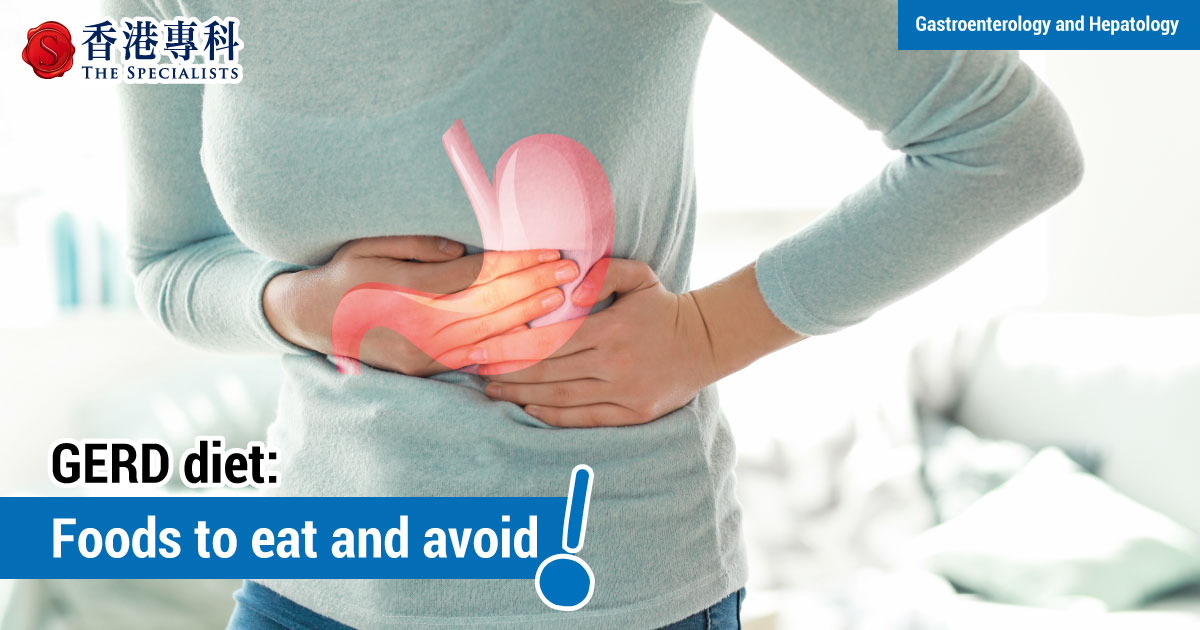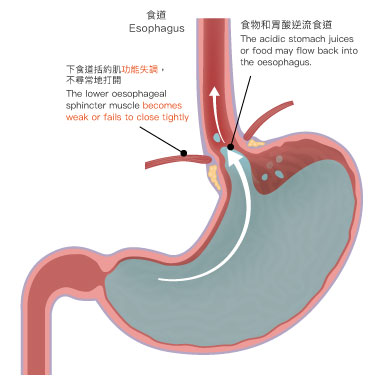GERD diet: Foods to eat and avoid

Gastroesophageal reflux disease, or GERD, describes the return of the stomach’s contents back into the oesophagus. It is prevalent in Hong Kong. If patients are suffering from GERD, they may experience a burning sensation (heartburn) in the chest (usually after eating), feeling uncomfortably full, difficulty swallowing, and a sore throat.
The foods you eat affect the amount of acid your stomach produces. Eating the right kinds of food is key to controlling GERD.

1. Vegetables
Vegetables are naturally low in fat and sugar. Good options include green beans, broccoli, asparagus, cauliflower, potatoes, and cucumbers.
2. Ginger
Ginger has natural anti-inflammatory properties, and it’s a natural treatment for heartburn and other gastrointestinal problems. You can add the sliced ginger to recipes or drink ginger tea to ease symptoms.
3. Oatmeal
Oatmeal is a breakfast favourite, a whole grain, and an excellent source of fibre. A diet high in fibre has been linked with a lower risk of acid reflux. Other fibre options include whole-grain breads and whole-grain rice.
4. Lean meats and seafood
Lean meats, such as chicken, and fish, are low-fat and can reduce symptoms of acid reflux. You might try them grilled, or broiled.
5. Egg whites
Egg whites are high in protein yet low in calories and fat. Patients suffering from GERD should stay away from egg yolks, which are high in fat and may trigger reflux symptoms.
6. Healthy fats
Reduce your intake of saturated fats and trans fats and replace them with some healthier unsaturated fats, include avocados, walnuts, and tofu.
There are also some foods commonly known to be heartburn triggers, especially the high-fat foods and chocolates.
1. High-fat foods
Fatty foods can cause the lower oesophageal sphincter (LOS) to relax, allowing more stomach acid to back up into the oesophagus. These foods also delay stomach emptying.
2. Chocolates
Chocolate also contains caffeine and theobromine, which can relax the smooth muscle in the lower oesophageal sphincter (LOS) and increase symptoms.
*The above information is for reference only, please consult your doctor for detail.

 3405 8288
3405 8288
